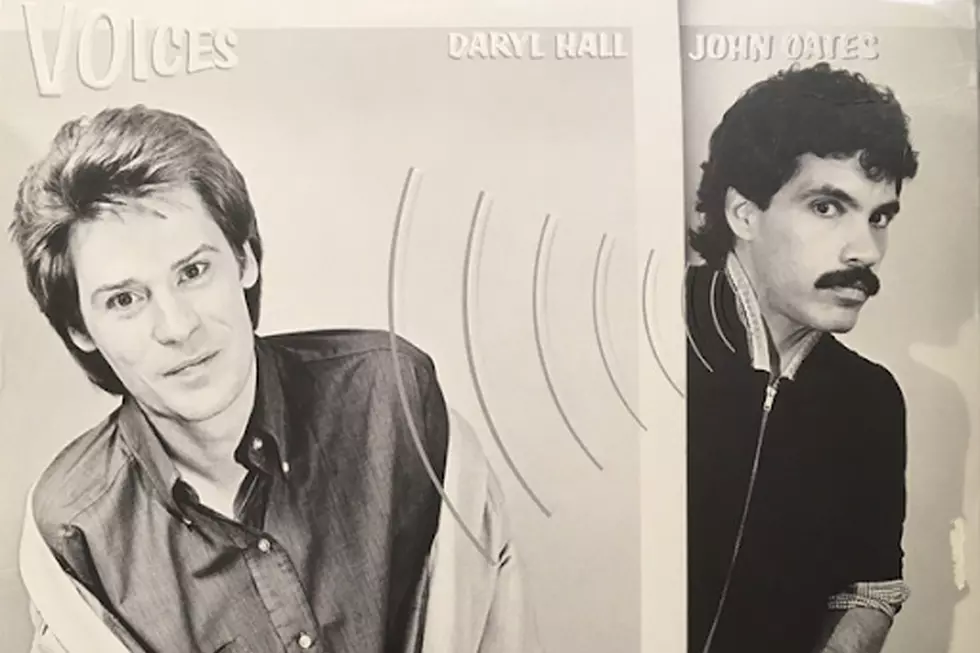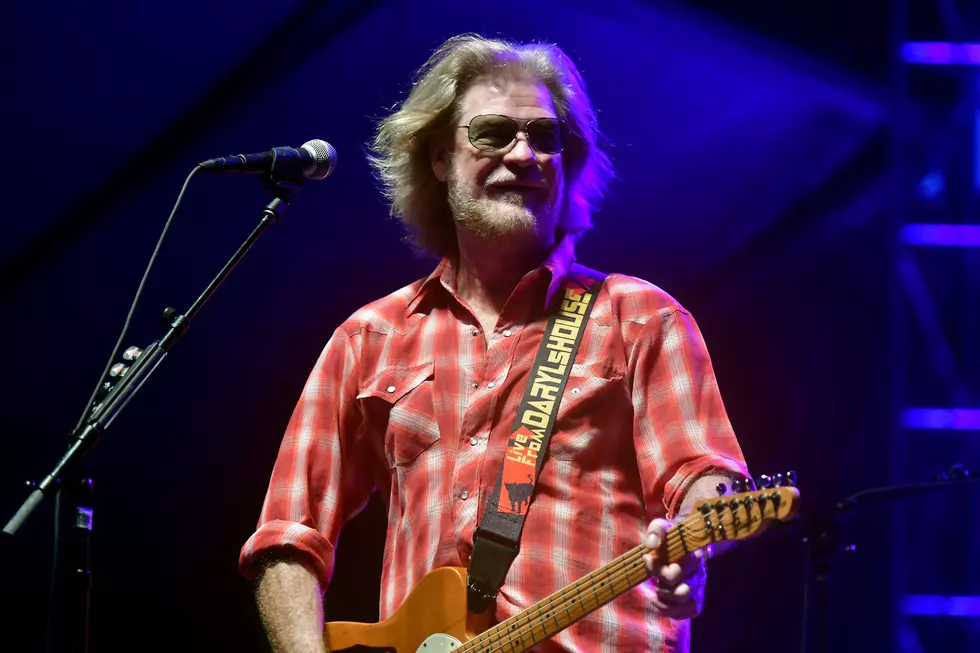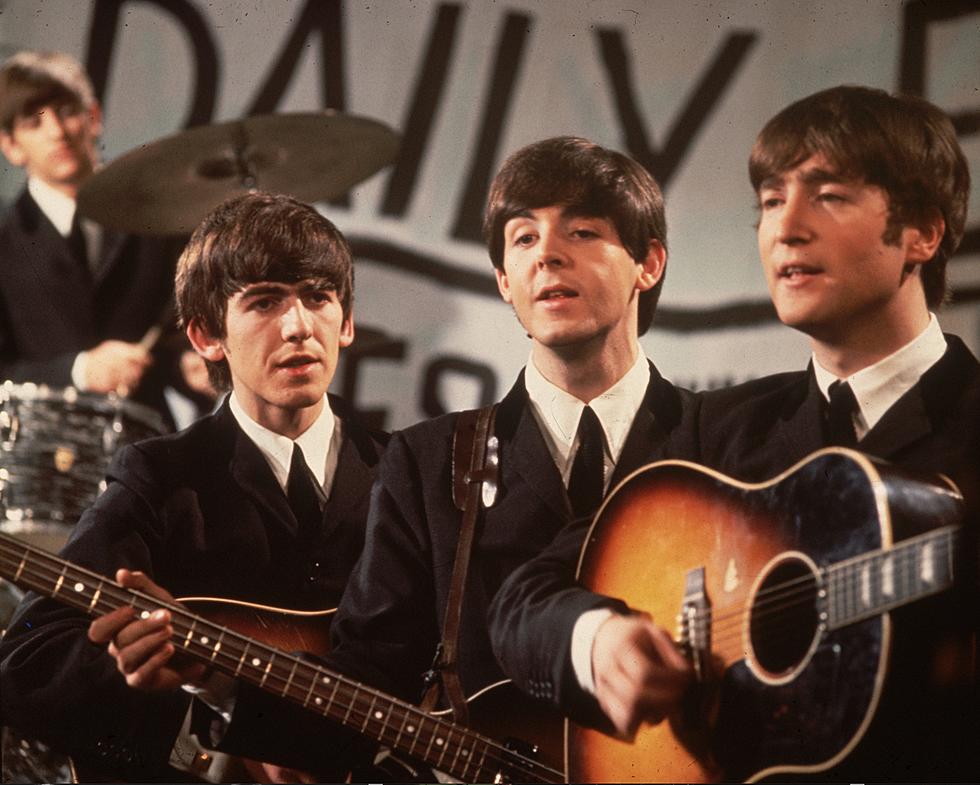
How ‘Voices’ Ended Hall and Oates’ Slump and Made Them Superstars
Daryl Hall and John Oates unveiled Voices, the comeback album that launched the duo to superstardom.
Before that, Hall and Oates were at a commercial crossroads in their career. After scoring its first No. 1 hit song in 1977 with "Rich Girl," the duo was unable to capitalize on that momentum with subsequent albums (Beauty on a Back Street, Along the Red Ledge, X-Static) and singles (“Wait for Me” was the highest-charting at No. 18) for the rest of the '70s. So when the new decade rolled around, Hall and Oates decided to employ a different approach for their next album: producing it themselves.
The result was Voices, a record that yielded four Top 40 hits, including the No. 1 single “Kiss on My List.” More importantly, Voices kicked off Hall and Oates' most successful, hit-making period.
“Without a doubt, Voices was a pivotal album in our career,” John Oates tells UCR. “It really marks a moment where Daryl and I decided to take creative control over our own music. It was the first album that we produced ourselves, and the resulting success really validated our gut feeling of that. And we were right all along.”
Daryl Hall said they “had a good idea of what we wanted to do with this album,” in a radio interview at the time. “We had a plan. First of all, we produced it ourselves. ... We had the idea, which we had been trying to do, [focusing on] really raw basic sound with no overdubs. It's basically just rhythm tracks.”
Released on On July 29, 1980, Voices still carried Hall and Oates' signature fusion of pop and blue-eyed soul. But there were other stylistic influences on the record too, including shades of New Wave and the avant-garde, combined with a distinct New York City vibe. “Take every one of our albums and records and put them into the context of the era and the time,” says Oates, “because we're products of our environment and moment.
“Living in New York at the time, you had punk and New Wave. We were living in the Village. We were in the vortex of all this energy that was happening. And so the music reflected it. It always has reflected where we were at the moment and the environmental and social influences of what was going on around us, because as songwriters, that's all you really have to use as your inspiration.”
The album's art-rock influence could be attributed to Hall's work with King Crimson leader Robert Fripp. The two collaborated on Hall's 1980 solo record Sacred Songs, which was released a few months before Voices. That sense of experimentation carried over into Voices, with songs like “Big Kids,” “Gotta Lot a Nerve” and “Africa” evoking a left-of-center sensibility.
Listen to Daryl Hall and John Oates' 'Big Kids'
“On Sacred Songs I used the Frippertronics [tape-looping method developed by Fripp] as the tying influence to tie all the varying styles together," Hall explained. "There was one element that was maintained through all the various things that happened. What we did was we decided to use voices - our own voices, which I think is our trademark, what it is about us that makes us different than everybody else - and use that as the unifying factor. So we made obviously great use of the voices, in some cases even louder than the lead track. That's where the name came from and that was the whole concept of it.”
On Voices, Hall and Oates allowed themselves to be adventurous and still come up with a number of radio-friendly hit singles, starting with the prophetically titled “How Does It Feel to Be Back,” which peaked at No. 30. “I wrote that thinking about when I was apart from my [then] wife," Oates recalled in the 2009 box set Do What You Want, Be What You Are. "It was like. 'What would it be like to get back together again?' Because we weren't really seeing each other very much.”
Watch Daryl Hall and John Oates' 'How Does It Feel to Be Back' Video
The duo followed with another single, a soulful cover of the Righteous Brothers' classic “You've Lost That Lovin' Feeling,” which reached No. 12.
“After we finished the album, I was in the Mudd Club [nightspot in downtown New York City] and I heard 'You've Lost That Lovin' Feeling,' and for years I had heard people say, 'You sound like the Righteous Brothers.' I heard this and I said, 'Wow, it really does sound like John and I,'" Hall recalled. "I thought, 'Okay, it sounds like us. ... If we're ever gonna do it, it's time to do it now.' So, we went in the next day and cut it in about five hours. It was definitely an afterthought. A lucky afterthought, I might add.”
Watch Daryl Hall and John Oates' 'You've Lost That Lovin' Feeling' Video
But it was Voices' third single that cemented Hall and Oates' comeback: “Kiss on My List" went to No. 1 and has remained one of the duo's most popular singles.
“That's the first song that Janna [Allen] and I wrote together,” Hall said in Do What You Want, Be What You Are. “It came very quickly. She had a little Wurlitzer in her apartment in L.A., and we just started writing literally standing there in a room. She started singing things; it was very much the two of us writing together. We went back to New York and recorded the song as a demo for her on a four-track machine in the studio. But everyone loved it so much we decided to put it 'as is' on Voices. I did all the backgrounds on my own and added the other parts later.”
Listen to Daryl Hall and John Oates' 'Kiss on My List'
The buoyant “You Make My Dreams,” the record's fourth and final single, peaked at No. 5. Its life has since been extended in TV shows like The Goldbergs and GLOW, and in the movies 500 Days of Summer and Ready Player One.
“This song was a hidden gem,” Oates admitted in a 2014 interview with WaxPoetics. “Daryl had this great piano groove that you hear when you hear the record. It’s really the heart and soul of that record. It had this positive, upbeat type of feel to it. It was a very simple idea saying you make my dreams come true. We were kind of laughing saying that this was too simple to be anything. When we wrote the words, we were really concentrating on writing some interesting words because the chorus was so simple. ... After all these years, that’s probably the song that gets the most play out of almost any song we’ve ever done.”
Watch Daryl Hall and John Oates' 'You Make My Dreams' Video
Another song from the album, the soulful ballad “Every Time You Go Away,” was never released as a single but became a No. 1 hit five years later when it was covered by British singer Paul Young. “'Every Time You Go Away' is one of those songs I wrote immediately - the chords, the lyrics, everything came at once,” Hall said. “It was completely autobiographical. I was going through a period of time with somebody, and if that person had been in the room, the song wouldn't have been written. That was a musical reach out to a situation. It was exactly what I wanted to say.”
Voices initially featured a black-and-white cover photo, the artistic concept of Hall and Oates themselves. "We came up with a stark black-and-white package spiced with a subtle embossed element," Oates recalled in his 2017 memoir Change of Seasons. The front cover photo was a mirror image of the back cover. It looked like the album sounded: sharp and cool."
As the LP began selling, the duo's record label decided to make a change to the artwork. "RCA Records became enamored with a more colorful photo that we had taken in Japan," Oates explained. "With the second pressing of the now-successful album, RCA in the United States followed suit and, without telling us, switched from the black-and-white version to the Japanese color version. That's why you might see two different covers for the Voices record."
Voices reached No. 17 on the Billboard album chart, a strong showing compared to performances of their three previous records. Most importantly, it provided the sonic template for the next albums - Private Eyes, H2O and Big Bam Boom - all of which helped Hall and Oates become one of the biggest artists of the '80s.
“I look at that album as the proof is in the pudding,” Oates says. "And the success of that album validated our artistic truth.”
Forgotten First Albums: Rock's 61 Most Overshadowed Debuts
More From KOOL 101.7










